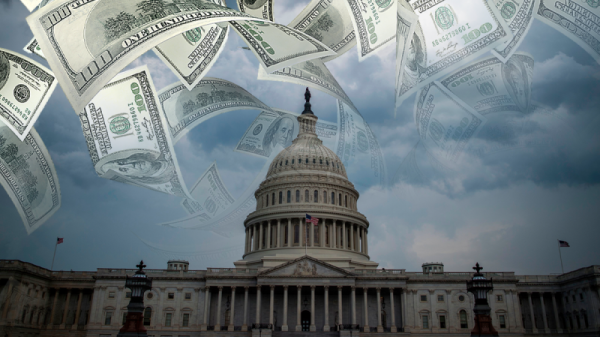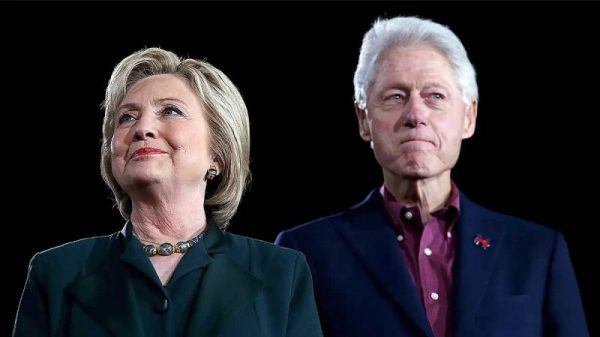Senate Majority Leader Charles E. Schumer (D-N.Y.) will lead a bipartisan delegation of senators on a visit to China, Japan and South Korea this month as part of an effort to advance U.S. interests in the region, his office confirmed.
Three Democrats and three Republicans will make up the delegation led by Schumer and Sen. Mike Crapo (R-Idaho), the top Republican on the Senate Finance Committee. The group will travel once the Senate recesses in October, according to a statement from Schumer’s office.
The visit comes at a time of tensions between Washington and Beijing, and members of the delegation — including Sen. Bill Cassidy (R-La.), Sen. John Neely Kennedy (R-La.), Sen. Maggie Hassan (D-N.H.) and Sen. Jon Ossoff (D-Ga.) — are likely to be confronted with points of disagreement between their governments, including on human rights, trade and geopolitics.
The Biden administration has sent several high-level officials to China in recent months in an effort to improve relations, starting with Secretary of State Antony Blinken in June, followed by Treasury Secretary Janet L. Yellen and John F. Kerry, President Biden’s special envoy on climate change, in July and Commerce Secretary Gina Raimondo in August.
But the Chinese government has not sent any of its officials to Washington, prompting some Republicans to call into question the purpose of any official visits from the United States until the Chinese reciprocate.
The issue is set to come to the fore next month, when the United States will host leaders of the Asia-Pacific Economic Cooperation in San Francisco for the trade bloc’s yearly summit. If Chinese President Xi Jinping attends, he may meet with Biden for the first time in person since last year. After that meeting, which took place on the sidelines of the Group of 20 summit in Indonesia, Biden declared that “there need not be a new Cold War” between China and the United States.
But relations between the two countries have not improved since, with disagreements growing over flash points such as Taiwan, U.S. trade controls on certain technologies including semiconductors, and the treatment of U.S. companies that operate in China.
Most recently, The Washington Post reported that the Biden administration will bar Hong Kong’s top government official, whom Washington sanctioned in response to China’s crackdown on Hong Kong in 2020, from attending the APEC summit — a move that could induce Xi to skip the event.
Multiple media outlets have reported that the congressional delegation led by Schumer is hoping to meet with Xi during its visit. A meeting has not been confirmed, and it would be unusual for U.S. senators to secure such a high-level meeting in China. (Xi met with congressional representatives, including the Senate majority leader at the time, Mitch McConnell (R-Ky.), during a state visit to the United States in 2015.)
But China’s president could agree to a meeting to signal his intention to attend the APEC summit — and to demonstrate confidence as he faces challenges at home, including an economic slowdown, said Robert Daly, director of the Kissinger Institute on China and the United States at the Wilson Center.
“He can’t be seen as hiding from the big problems,” including China’s worsening relations with the United States, Daly said.
The senators, in seeking this meeting, also want to project confidence and show the American public that they defended U.S. workers and businesses overseas and remonstrated Beijing over policies Washington perceives as a violation of its own national security, Daly said. U.S. officials also want to reassure concerned allies, including in Europe, that they “are interested in responsible management of this rivalry,” he said.
While in China, the lawmakers plan to meet with officials and representatives of U.S. and Chinese businesses operating in both countries, Schumer’s office said, adding that the majority leader “will focus on the need for reciprocity in China for U.S. businesses … as well as on maintaining U.S. leadership in advanced technologies for national security.”
The delegation is also expected to touch on some of the most sensitive issues in the U.S.-China relationships during the trip, including human rights and the deadly flow of fentanyl from China to the United States.
Abigail Hauslohner, Ellen Nakashima and Shibani Mahtani contributed to this report.
Senate Majority Leader Charles E. Schumer (D-N.Y.) will lead a bipartisan delegation of senators on a visit to China, Japan and South Korea this month as part of an effort to advance U.S. interests in the region, his office confirmed.
Three Democrats and three Republicans will make up the delegation led by Schumer and Sen. Mike Crapo (R-Idaho), the top Republican on the Senate Finance Committee. The group will travel once the Senate recesses in October, according to a statement from Schumer’s office.
The visit comes at a time of tensions between Washington and Beijing, and members of the delegation — including Sen. Bill Cassidy (R-La.), Sen. John Neely Kennedy (R-La.), Sen. Maggie Hassan (D-N.H.) and Sen. Jon Ossoff (D-Ga.) — are likely to be confronted with points of disagreement between their governments, including on human rights, trade and geopolitics.
The Biden administration has sent several high-level officials to China in recent months in an effort to improve relations, starting with Secretary of State Antony Blinken in June, followed by Treasury Secretary Janet L. Yellen and John F. Kerry, President Biden’s special envoy on climate change, in July and Commerce Secretary Gina Raimondo in August.
But the Chinese government has not sent any of its officials to Washington, prompting some Republicans to call into question the purpose of any official visits from the United States until the Chinese reciprocate.
The issue is set to come to the fore next month, when the United States will host leaders of the Asia-Pacific Economic Cooperation in San Francisco for the trade bloc’s yearly summit. If Chinese President Xi Jinping attends, he may meet with Biden for the first time in person since last year. After that meeting, which took place on the sidelines of the Group of 20 summit in Indonesia, Biden declared that “there need not be a new Cold War” between China and the United States.
But relations between the two countries have not improved since, with disagreements growing over flash points such as Taiwan, U.S. trade controls on certain technologies including semiconductors, and the treatment of U.S. companies that operate in China.
Most recently, The Washington Post reported that the Biden administration will bar Hong Kong’s top government official, whom Washington sanctioned in response to China’s crackdown on Hong Kong in 2020, from attending the APEC summit — a move that could induce Xi to skip the event.
Multiple media outlets have reported that the congressional delegation led by Schumer is hoping to meet with Xi during its visit. A meeting has not been confirmed, and it would be unusual for U.S. senators to secure such a high-level meeting in China. (Xi met with congressional representatives, including the Senate majority leader at the time, Mitch McConnell (R-Ky.), during a state visit to the United States in 2015.)
But China’s president could agree to a meeting to signal his intention to attend the APEC summit — and to demonstrate confidence as he faces challenges at home, including an economic slowdown, said Robert Daly, director of the Kissinger Institute on China and the United States at the Wilson Center.
“He can’t be seen as hiding from the big problems,” including China’s worsening relations with the United States, Daly said.
The senators, in seeking this meeting, also want to project confidence and show the American public that they defended U.S. workers and businesses overseas and remonstrated Beijing over policies Washington perceives as a violation of its own national security, Daly said. U.S. officials also want to reassure concerned allies, including in Europe, that they “are interested in responsible management of this rivalry,” he said.
While in China, the lawmakers plan to meet with officials and representatives of U.S. and Chinese businesses operating in both countries, Schumer’s office said, adding that the majority leader “will focus on the need for reciprocity in China for U.S. businesses … as well as on maintaining U.S. leadership in advanced technologies for national security.”
The delegation is also expected to touch on some of the most sensitive issues in the U.S.-China relationships during the trip, including human rights and the deadly flow of fentanyl from China to the United States.
Abigail Hauslohner, Ellen Nakashima and Shibani Mahtani contributed to this report.





















